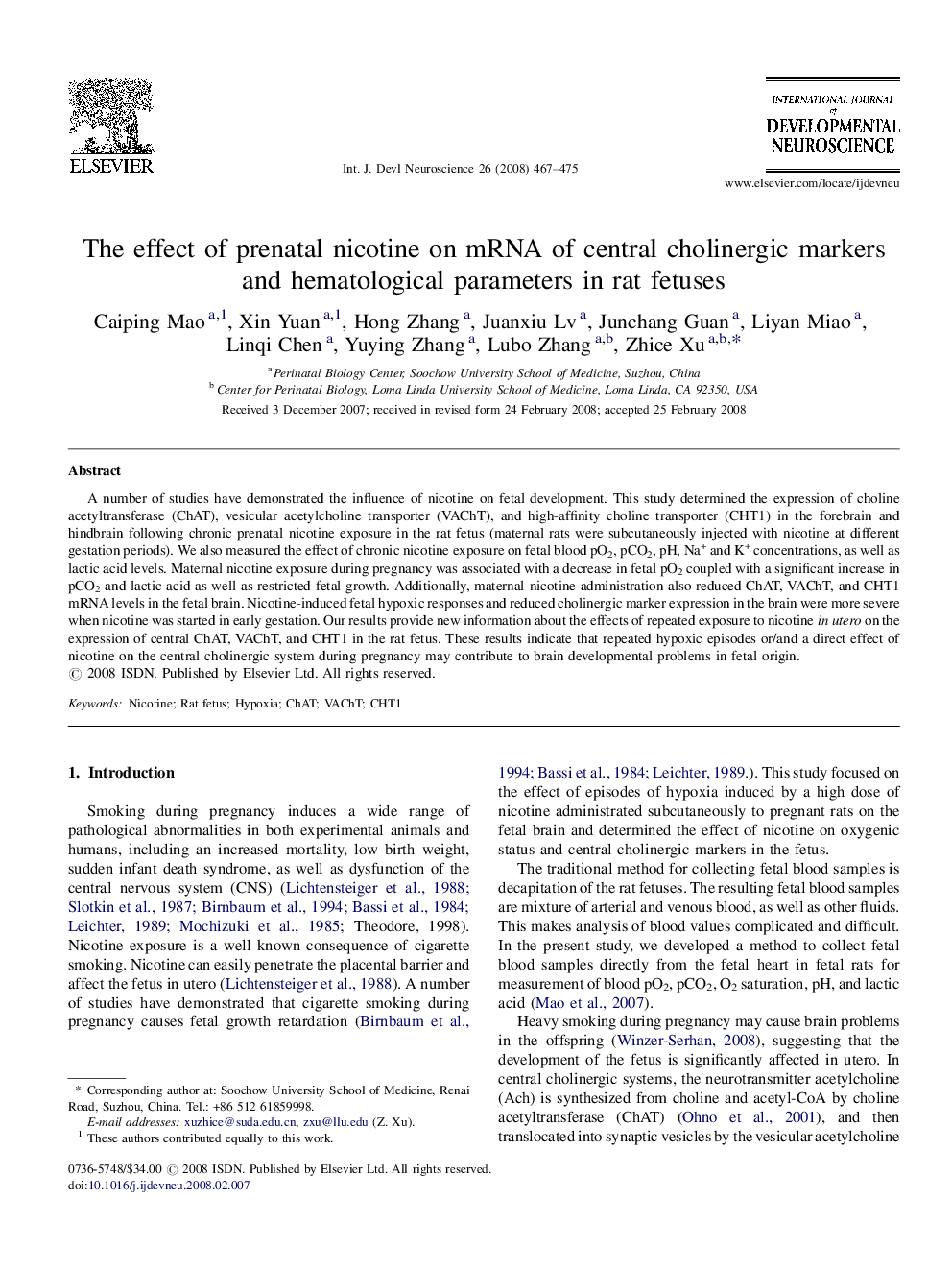| Article ID | Journal | Published Year | Pages | File Type |
|---|---|---|---|---|
| 2786679 | International Journal of Developmental Neuroscience | 2008 | 9 Pages |
Abstract
A number of studies have demonstrated the influence of nicotine on fetal development. This study determined the expression of choline acetyltransferase (ChAT), vesicular acetylcholine transporter (VAChT), and high-affinity choline transporter (CHT1) in the forebrain and hindbrain following chronic prenatal nicotine exposure in the rat fetus (maternal rats were subcutaneously injected with nicotine at different gestation periods). We also measured the effect of chronic nicotine exposure on fetal blood pO2, pCO2, pH, Na+ and K+ concentrations, as well as lactic acid levels. Maternal nicotine exposure during pregnancy was associated with a decrease in fetal pO2 coupled with a significant increase in pCO2 and lactic acid as well as restricted fetal growth. Additionally, maternal nicotine administration also reduced ChAT, VAChT, and CHT1 mRNA levels in the fetal brain. Nicotine-induced fetal hypoxic responses and reduced cholinergic marker expression in the brain were more severe when nicotine was started in early gestation. Our results provide new information about the effects of repeated exposure to nicotine in utero on the expression of central ChAT, VAChT, and CHT1 in the rat fetus. These results indicate that repeated hypoxic episodes or/and a direct effect of nicotine on the central cholinergic system during pregnancy may contribute to brain developmental problems in fetal origin.
Related Topics
Life Sciences
Biochemistry, Genetics and Molecular Biology
Developmental Biology
Authors
Caiping Mao, Xin Yuan, Hong Zhang, Juanxiu Lv, Junchang Guan, Liyan Miao, Linqi Chen, Yuying Zhang, Lubo Zhang, Zhice Xu,
